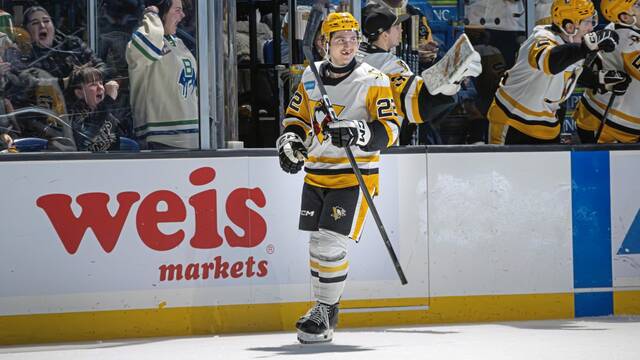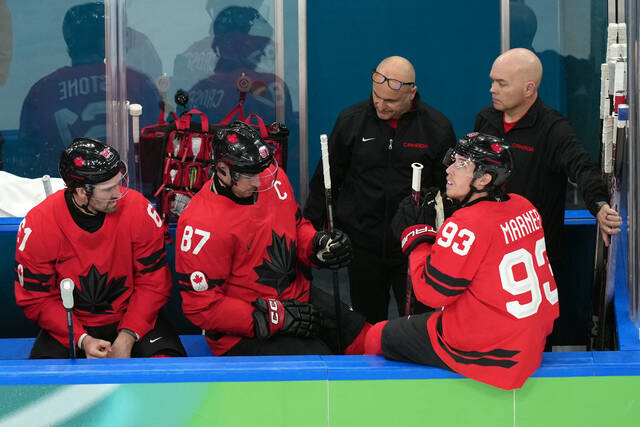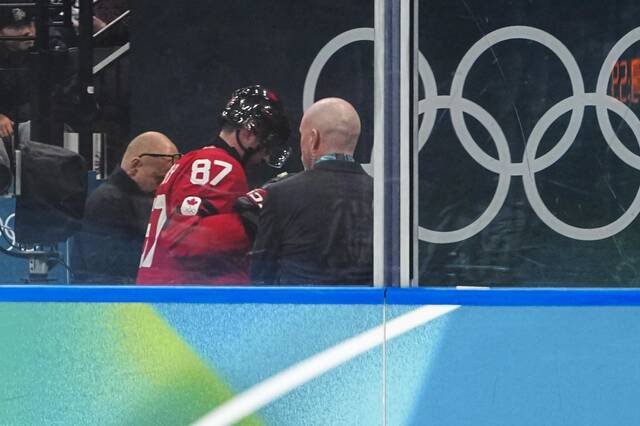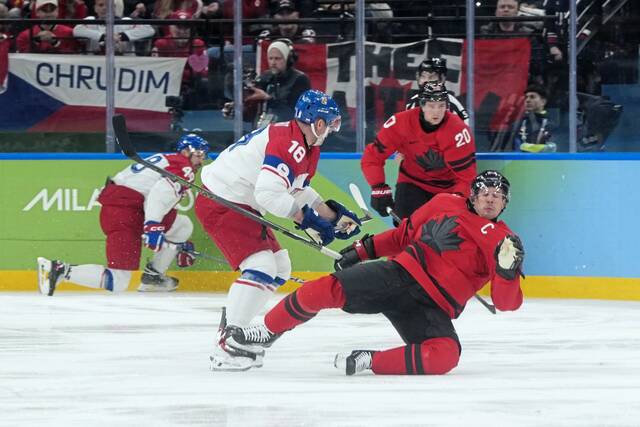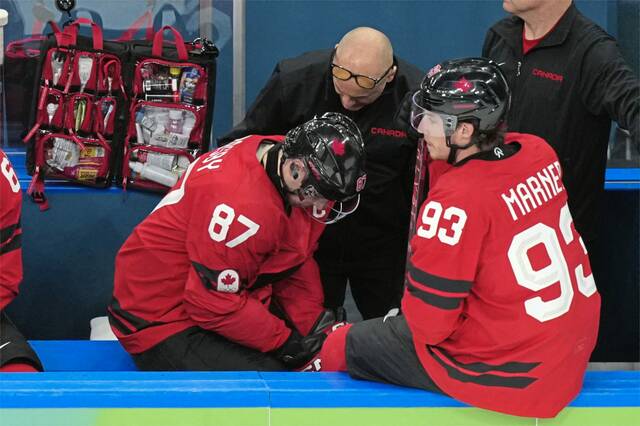Evgeni Malkin didn’t like the question.
It was April 1, shortly after the Pittsburgh Penguins fell 4-3 to the Boston Bruins at PPG Paints Arena, for their third one-goal loss in as many tries to the 2022-23 Presidents’ Trophy winners.
The Penguins had fallen behind repeatedly in the contest, only to tie and re-tie the game before ultimately failing to respond to David Pastrnak’s third goal of the night with less than three minutes remaining in regulation.
In the predictably crestfallen atmosphere of the Penguins’ locker room, Malkin was surrounded by reporters following the game.
He took exception to one question in particular when asked if the team’s power-play units, which had gone 0 for 6 in the loss to Boston, needed to shoot the puck more.
“Do you think we’re not trying (to shoot) or what? Sometimes, you see (a shooting lane) and they block a shot,” Malkin said. “We tried to move the puck, hoping something opened. Maybe shoot more but we’re trying. It’s Boston — they already (won the) Presidents’ Trophy. They do everything … like … perfect. We (were) fighting tonight very well. The power play doesn’t work. But we’ll listen to you and shoot a little bit more (Sunday) for sure.”
Perhaps Malkin’s answer was fair. After all, he’s the one on the ice. And in his defense, Boston finished the regular season with the NHL’s top penalty kill at 87.3%.
But just a few weeks later, following the team’s elimination from postseason consideration, fellow power-play regular Jake Guentzel offered a notably different assessment than was provided by Malkin.
“Sometimes we like to overpass a little bit too much,” he said. “Lot of skill players out there. I think we’re at our best when we’re just keeping it simple and not trying to pass the puck in the net. I think from our end, we’ve just got to start shooting the puck a little bit more and just gotta have guys in front of the net.”
It is far from surprising or controversial that Malkin and Guentzel had different responses when asked about the Penguins’ power-play weeks apart from one another and in different contextual settings.
Coach Mike Sullivan, asked after the season concluded, talked about the power play for almost four minutes.
“The power play had stretches of the season where it was extremely good,” Sullivan said. “And then, we went through other stretches, where it was a struggle.
“… I don’t think it was as bad as sometimes (the media) perceived it to be. I think there were moments when we could have been better. But there were also long stretches where they were difference makers for us as far as winning games.”
By the end of the regular season, the Penguins’ power play had converted on 21.7% of its opportunities, good for 14th in the NHL, which Sullivan noted.
But in crunching the numbers, the team’s power play may best have been described as underachieving.
The two units, featuring the likes of Sidney Crosby (33 goals), Evgeni Malkin (27 goals), Jake Guentzel (36 goals), Rickard Rakell (28 goals), Jason Zucker (27 goals) and Bryan Rust (20 goals) among other talented players, peaked in December, when they combined to convert 32% of their man-advantages over 13 games played in the month, good for fifth in the NHL during that time.
If December was the power play’s peak, November (10.3% over 13 games) and February (14.7% over 11 games) were valleys.
The rest of the season was more or less in line with the Penguins’ final power-play numbers: in October, it went 22.9% (15th); for the month of January, also 22.9% (10th); while March (23.6%) ranked 11th; and April (20.7%) ranked 14th across the NHL during that span.
While not appearing ready to label the power-play as an abject failure, Sullivan did identify it as an area of the Penguins’ game that will be receiving a thorough postseason breakdown.
“Would we have liked it to be better in certain circumstances? Sure. (Are) there areas for it to grow? Absolutely,” Sullivan said. “We’re always trying to try to find ways to help that group improve and get better.
“ … In a lot of ways, when you look at it, (the power play) was probably a microcosm of our group, just with some of the inconsistencies.”



